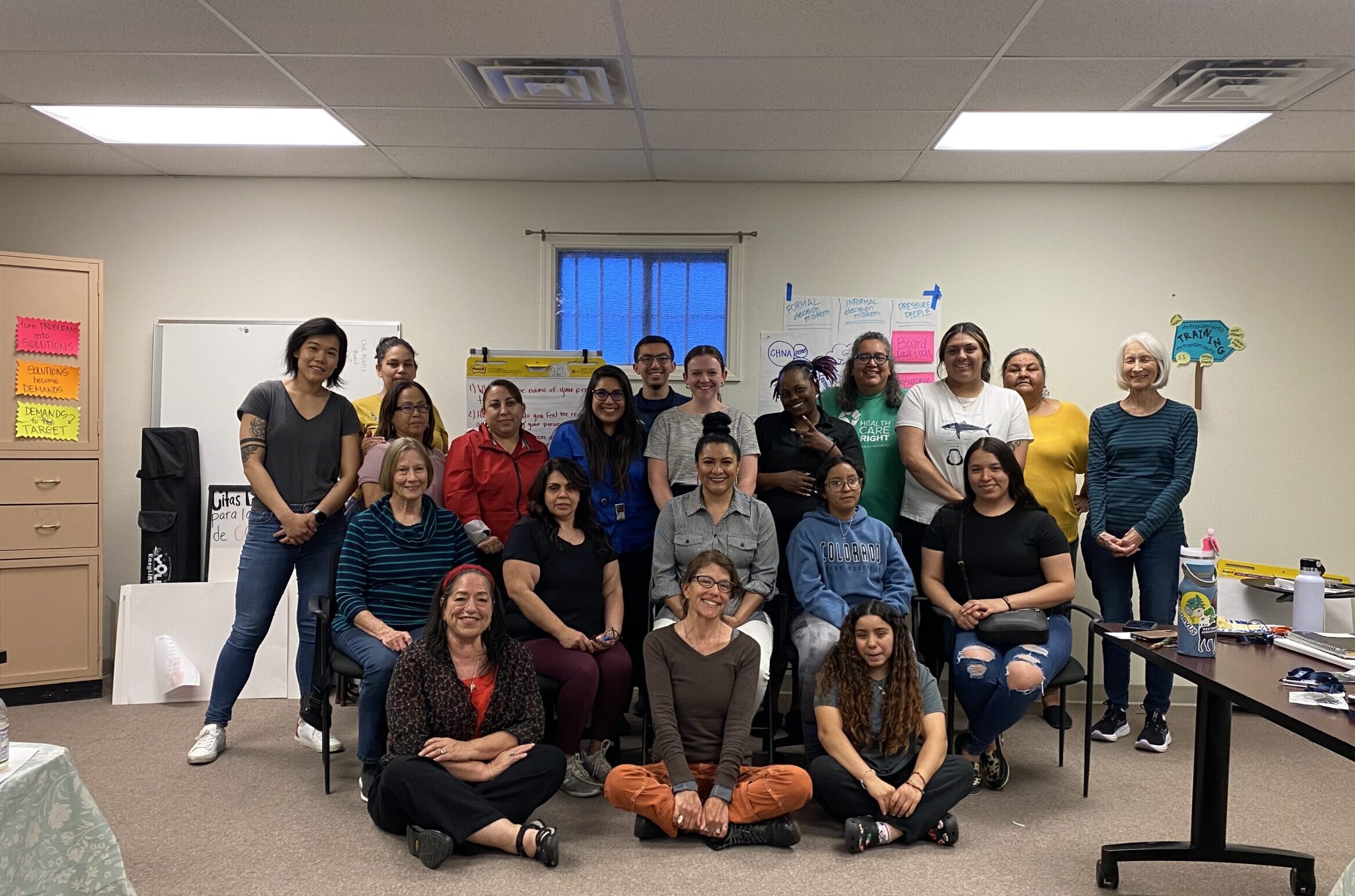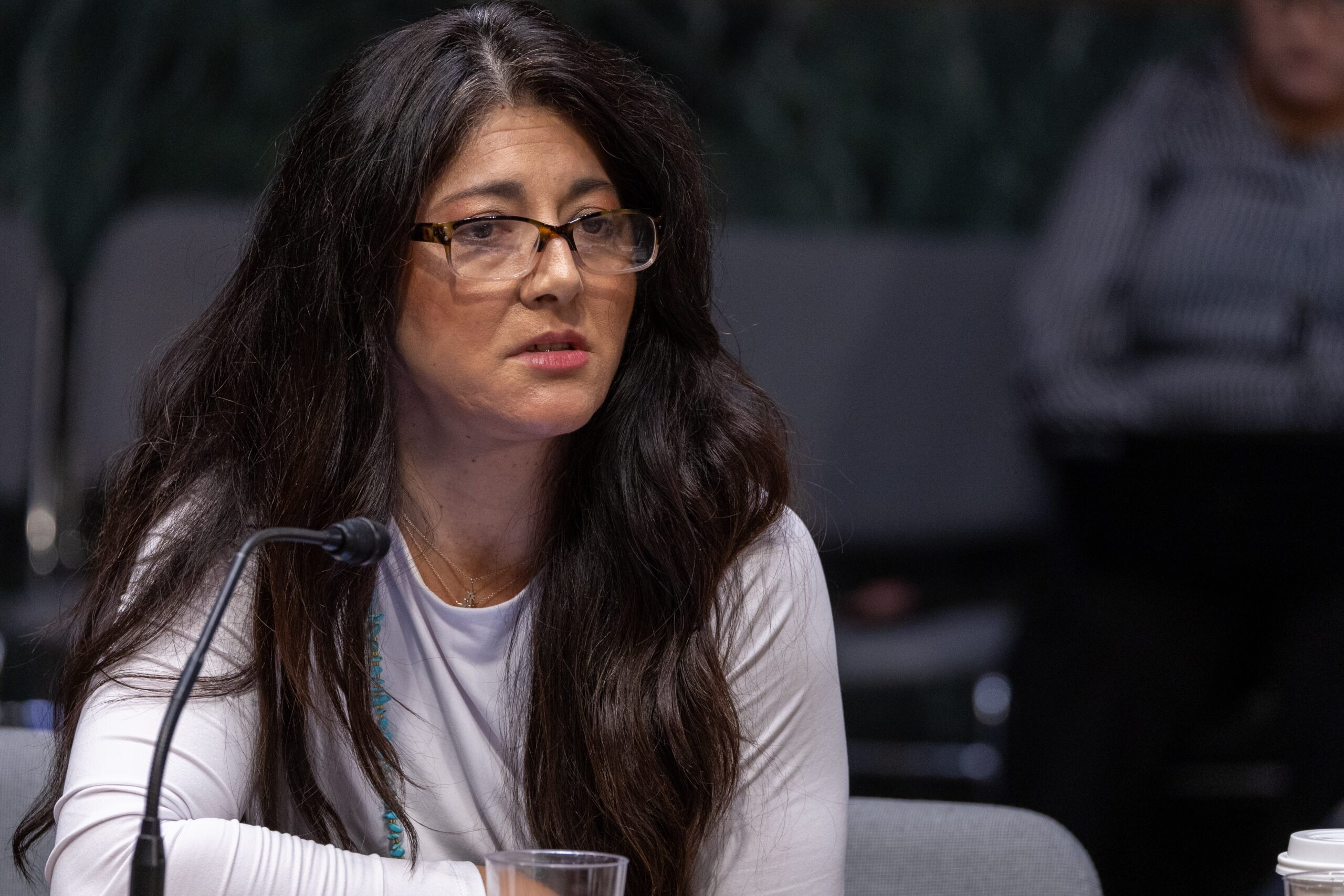Colorado Center for Health Progress Amplifies Community in Fight to Hold Hospital Systems Accountable

Community Catalyst is proud to partner with dozens of local, state and national organizations to advance community-led and informed strategies that address the root causes of the medical debt crisis in America. Fueled by our commitment to advance health and economic justice, we facilitate progress through the lens of race equity and provide organizing, advocacy, and policy expertise as well a forum for knowledge sharing to support partners navigating a complex health system that for too long has put profits over people’s health and economic well-being.
One such organization is the Center for Health Progress (CHP), a Colorado community-based organization building a powerful movement to unite against corporate greed in the health system. CHP operates in three different cities in Colorado: Denver, the state capital; Fort Morgan, a northern city that is built around the packing industry and has limited health care access; and Pueblo, a southern city of about 110,000 people.
Colorado has some of the more promising policies among all states in Community Catalyst’s compendium of state policies to moderate hospitals’ prices and reduce medical debt. Several aspects of Colorado policies are novel and innovative and have the potential to be models for advocates and policymakers in other states as well as at the federal level. At the same time, many people in Colorado still face medical debt challenges.
To address this, CHP runs two campaigns out of their Pueblo office focused on hospital accountability: “Community Benefit” and “Care over Cost.” These campaigns overlap on the core value that hospitals should be held accountable to their communities and the money that hospitals spend on the community should be driven by community input. Together with partners including, Colorado Center on Law and Policy and Colorado Consumer Health Initiative, CHP works to tackle medical debt through a variety of levers including:
- Pushing for strong enforcement of the recent hospital financial assistance law, with which many Colorado hospitals are not currently complying with;
- Fighting efforts by the Colorado Hospital Association and individual hospitals to dilute the protections established by the new law; and
- Educating policymakers about the need to ban the inclusion of medical debt information on peoples’ credit reports and credit scores.
In late April, we traveled to Pueblo to join CHP for their monthly meeting with community members, organizers and advocates. Led by members of CHP’s Organizing Team, this monthly meeting brings together 20 individuals with diverse experiences and cultures to discuss updates on various health care campaigns, as well as share and celebrate progress. There was a welcoming sense of warmth as we gathered around a home-cooked meal prepared by two community members. This is the labor of love that sustains us – and the human connection with those impacted most by the health system – which reminds us of the incredible power of community and human connection that is required to sustain the movement for health justice over the long haul.
According to U.S. Census data, over 16 percent of people in Pueblo speak a language other than English at home, with the most common language being Spanish. Many CHP members have been negatively impacted by the lack of language access in health care settings, often being forced to provide interpretation for their own family and/or enduring extensive wait times for telephone interpretation.
Meaningful access is a core part of CHP’s work as they advocate to ensure all community members are receiving the quality care they deserve. This access includes a deep commitment to language justice to ensure community members are empowered to navigate health care spaces in their preferred languages. Some community leaders are combatting this by training to become certified interpreters in English and Spanish. Their efforts have allowed monolingual speakers to fully participate and feel heard throughout community meetings. We believe hospitals can commit to similar language access compliance efforts to support community needs.
CHP Senior Community Organizer Yesenia Beascochea, an immigrant from Durango, Mexico, sees her role as an important part of power building because community leaders have a personal investment in this work. Yesenia is a skilled Spanish language interpreter and her commitment to her local community is evidenced in her service on the Board of Directors for Pueblo Community Health Centers.
I love this work because I am bringing my life and needs into places of power and people listen. Then I get to bring others along with me to do the same thing.
What stood out to us most was the passion and community power that has been built in Pueblo to stand up to a local non-profit hospital that was recently bought by UCHealth, a Colorado-based non-profit health system. While reaping both state and federal tax breaks for its non-profit status, its harmful billing practices paint a very different picture. In just five years, UCHealth has sued more than 15,000 patients. They did this while recording $830 million in profits for a single year. This went under the radar for so long because they were often doing so under another name, leveraging third-party collections agencies, according to an investigative report from Colorado News Collaborative and KFF Health News.
20%
of Pueblo county’s population
holds some form of medical debt
Source: KFF Health News
Pueblo County reports that 20 percent of its population holds some form of medical debt, with a striking 36 percent for people of color. Even more striking is the outsized impact felt by immigrant communities – with larger percentages of the local population reporting medical debt on their credit reports than their peers. Nobody should be forced to go into debt or get care – and we are pleased to see recent progress from the Biden-Harris administration to remove medical debt from all credit scores. This is just one piece in the larger puzzle of reforms needed to tip the scales in favor of people, so that we can end the medical debt crisis that impacts 4 in 10 adults in the United States.
This is exactly the reason why we are fighting so hard for state and federal policy solutions that shine an even brighter light on the role non-profit hospitals play in the medical debt crisis. Instead of helping our communities – they are hurting them. And people like Misty are paying the price.

At age 23, Grand Junction resident Misty underwent life-saving heart surgery, leaving her with $200,000 in medical bills and unable to divorce her abusive partner. Because medical debt had destroyed her credit score, Misty could not get housing, a car, or a credit card on her own, forcing her to stay in an abusive relationship for 20 years. Misty studied and got her license to be an insurance provider, but she could not get a job because prospective employers checked her credit as part of the hiring process. Allowing medical debt to ruin credit scores exacerbates existing inequalities in people’s ability to maintain their health and economic well-being. That is why we applaud efforts like the Consumer Financial Protection Bureau’s proposed rule to prohibit the inclusion of medical debt in credit eligibility determinations.
The monthly meeting we were privileged to attend was just a small insight into the much larger movement happening at CHP and across Colorado. CHP’s community leaders across the state are deeply valued; each member is provided voting power on who should be elected to their Board of Directors as well as voting power on organizational priorities. This model allows community leaders to run for these highly regarded positions within the organization and recognizes the importance of transparency by ensuring leadership and organizational direction are truly representative of their local communities.
As CHP continues to advocate for their community needs and fight for a seat at the table, they gather more voices and perspectives to build momentum. It is relational work, and they are building power for a generational fight. We can all learn the value of being intentional in how we welcome new members into our bases and move them through the path of engagement. This work doesn’t happen overnight, but through genuine conversations and focused trainings, we can continue to center community voices in the movement to hold hospitals accountable and fight medical debt.
Get Involved
Are non-profit hospitals providing the community benefits they promised in your community? Share your story here.
